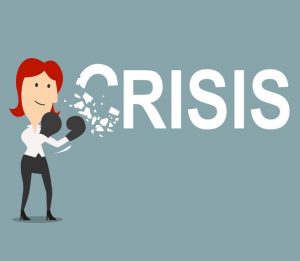 Marketers frequently talk about being agile in a constantly changing marketplace. Small shifts are generally easy, but when big things happen, marketing efforts require a larger course correction. When crisis strikes, some companies may react by reallocating budgets and shifting the focus from marketing to other initiatives. But when marketers put agility into action, they can find innovative ways to achieve existing objectives while maintaining communication with prospects, customers and other stakeholders. Here’s how:
Marketers frequently talk about being agile in a constantly changing marketplace. Small shifts are generally easy, but when big things happen, marketing efforts require a larger course correction. When crisis strikes, some companies may react by reallocating budgets and shifting the focus from marketing to other initiatives. But when marketers put agility into action, they can find innovative ways to achieve existing objectives while maintaining communication with prospects, customers and other stakeholders. Here’s how:
1. Connect with your purpose
The first thing organizations need to think about is how they want their brands to be perceived when business operations return to normal. This is about knowing and exemplifying what your company stands for. When considering what and how to communicate, marketers should look to company values for guidance. Integrate and reinforce your core values in every inward- and outward-facing communication.
2. Be more present
As business gets more complicated and stress runs high, it’s easy to lose focus. Instead of trying to do more with less, work on being completely connected to each task and communication. During business interactions, focus completely on the person you are connecting with. Practice active listening, ask meaningful questions and offer value whenever possible. Increase productivity by eliminating distractions such as pining email, ringing phones and multitasking. Take time out to simply think. Mindful moments can lead to creative problem solving, innovation and inspiration.
3. Focus on what your customers rely on you to do
Instead of creating new ways to attract customers, identify what your customers already rely on you for. In challenging times, your customers will appreciate your capacity to support what they already rely on you to do. If necessary, find innovative ways to deliver your products or services, but resist the temptation to capitalize on challenges or introduce new programs.
4. Consider your tone
In times of crisis, it is important to understand how your target markets are being affected. No matter what is happening, empathy and compassion are always the right approach. Resist the hard sell, self-promotion and humor. Instead, provide support, reach out to say hello and serve as a caring resource for your customers during difficult times.
5. Show you care
Make business interactions more personal during a crisis. Show you care about the person, and not just the transaction by sharing memories, personal experiences and encouragement.
6. Be positive
It’s nearly impossible to set a caring tone when talking negatively about your job, competitors, customers, the economy or other topics. A negative culture is not a caring one. While it isn’t necessary to sugarcoat facts, create a positive environment by expressing gratitude, sharing accomplishments and finding new solutions for existing challenges.
We can’t predict the future, but we can prepare for it
None of us knows what lies around the corner, marketers included. But we can improve our chances of weathering a crisis by planning ahead and practicing resiliency. Identify potential challenges, develop situational strategies and create a plan that includes assignment of responsibility, crisis messaging and contingency approaches.
Know when to scale back, when to stop, and when to pause and be thoughtful. At the end of the day, people will remember how you made them feel during a challenging time. To learn more about how to market effectively during a crisis, contact Trade Press Services today.
